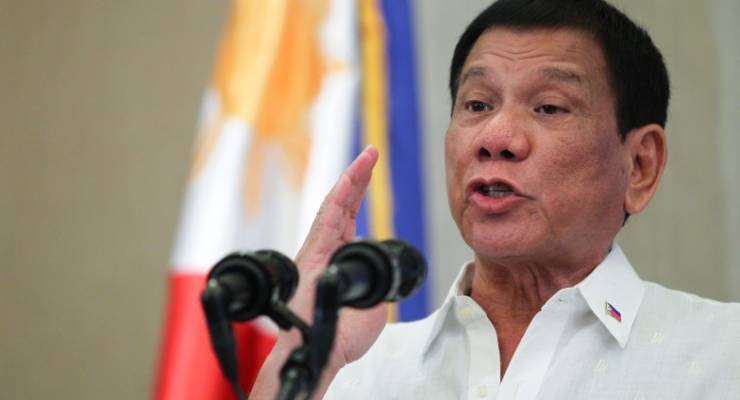
Philippines President Rodrigo Duterte’s attacks on his country’s press went up another notch over the weekend when it was revealed tax evasion charges would be laid against independent news website Rappler and its chief executive, former CNN correspondent Maria Ressa.
Rappler has been fiercely critical of Duterte’s regime, and he refused to renew its licence earlier this year.
A day after the well-respected Ressa accepted an award from the International Center for Journalists last week, The New York Times reported that Duterte’s government would be lodging charges of tax evasion against both Rappler and Ressa. The government has also accused the website of breaking foreign ownership laws related to its partnerships with news outlets outside the country.
Last year, the Cambodian government employed a similar tactic against independent newspaper The Cambodia Daily, issuing a crippling tax bill that forced it to close.
University of Queensland professor and UNESCO Chair Peter Greste told Crikey that the situation in the Philippines was “pretty grim”.
“Most of the independent news organisations that have been doing their jobs properly have been asking difficult questions of the government,” Greste said. “And Rappler has been doing that, and they have come under sustained attack from the government and a very well-organised social media campaign by pro-Duterte trolls.”
Greste, who is friends with Ressa, said Duterte’s attacks on journalists was in the same vein as US President Donald Trump’s attacks on the media. “This is an attack on press freedom,” he said. “Rappler is by no means the only news organisation that is robust in its reporting in the Philippines, there are plenty of others. But Rappler has a very high profile and very strong tradition of being critical of the government.”
Greste said the charges were an abuse of the law and an attempt to shut down a legitimate news organisations. “Going after Maria and her company in this way both validates the work they’re doing and places it in serious jeopardy,” he said.
In accepting her award last week, Ressa also compared Duterte’s attacks on her to Trump’s attacks on the press.
“Boundaries around the world collapse and we can begin to see a kind of global playbook. When President Trump banned Jim Acosta last night, he followed President Duterte’s actions against our reporter Pia Ranada and me,” she said. “Power corrupts. It coerces. And co-opts.”
She used her speech to appeal to people working in governments like Duterte’s to speak up against their leaders (“your silence means consent”), to social media platforms to stop the spread of fake news and online hate, and to journalists and activists to continue their work.
Greste, who was jailed in Egypt while working for Al Jazeera, said the case was another example of world leaders attacking the press. “What we’ve seen is governments have moved from seeing the press as intermediaries to obstacles , and what they’re doing is using the Trumpian rhetoric of ‘fake news’ and calling the media the enemy of the people,” he said. “This isn’t limited to the Philippines … press freedom around the world is in danger and under serious threat.”
As well as the physical threat to journalists — three journalists investigating corruption in Europe have been murdered in the past year, and, of course, Saudi journalist Jamal Khashoggi was murdered in Turkey six weeks ago — trust in journalism is being undermined, Greste said. “With all the talk about fake news, there’s been a loss of trust in journalism, which means we’re seeing an unravelling of one of the four pillars of democracy.
“It’s often messy and not always dignified, but it’s done a pretty good job of holding politicians to account over the past few hundred years and I don’t think we can lose sight of that.”








Same ol’ same ol’ – including the abuse of media, for political gain, by players in the industry itself – resulting in a corrosion of public trust (that these “leaders” can then manipulate) : while large parts of the industry sit tight and don’t challenge such abuses, even as it eats away at society?
Duterte is just another in a long line of populist attention-seeking cretins running a country – looking for somewhere else to park blame for their own inadequacies and failure to deliver on over-hyped hope used to grab votes from a gullible public looking for simple fast-fixes to complex problems, that won’t stretch their brain to actually thinking about such problems.
Someone who they can blame later for failures – not least in their failure to challenge their own “reality”?